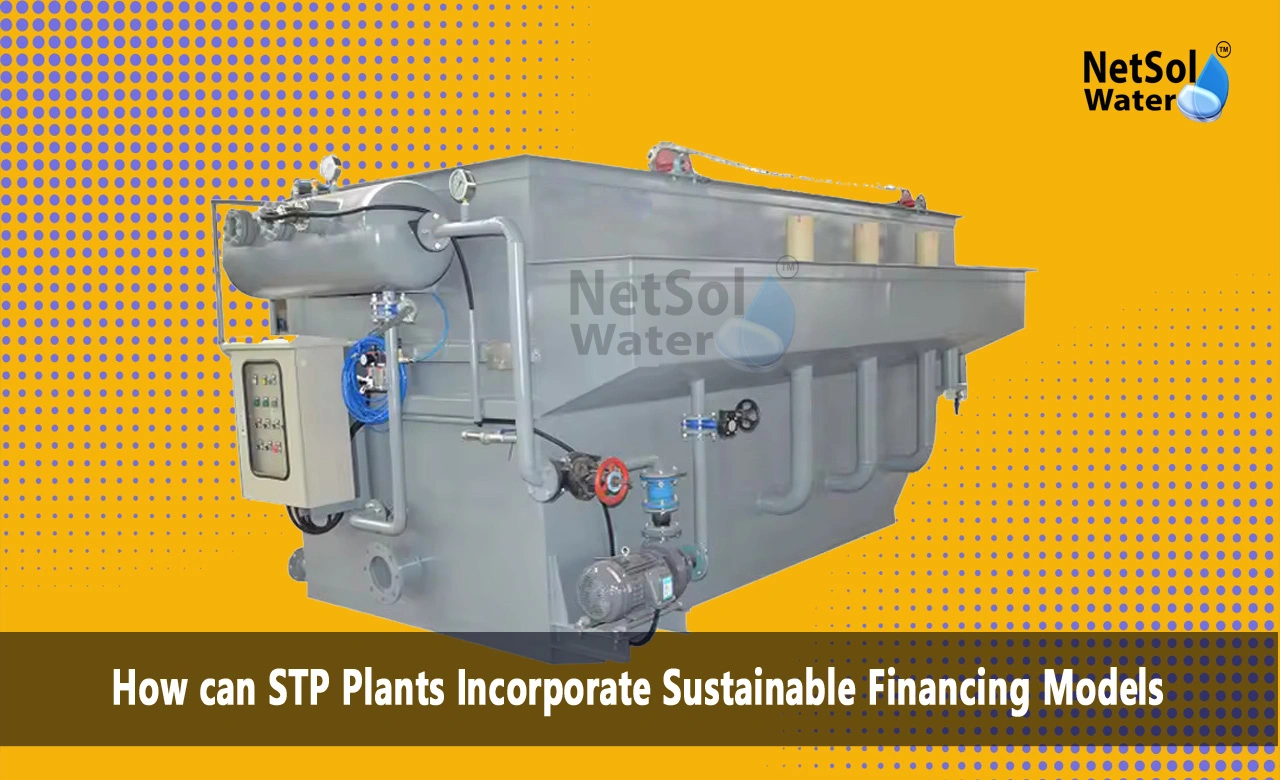How can STP Plants Incorporate Sustainable Financing Models?
Sewage treatment plants play a critical role in safeguarding public health and preserving environmental integrity by treating wastewater before its release into water bodies. However, the establishment and operation of sewage treatment plants require significant investment, posing financial challenges for municipalities and utilities. To ensure the sustainability and affordability of sewage treatment services, innovative financing models are essential. We will look for various sustainable financing models that sewage treatment plants can adopt to address funding needs while promoting long-term viability and environmental stewardship.
Public-Private Partnerships (PPPs)
Public-private partnerships (PPPs) are a way for public and private sectors to work together on financing and running sewage treatment plants. In PPPs, private companies usually handle designing, building, and running sewage treatment facilities, while the public sector owns and watches over them. PPPs can bring in private money, know-how, and tech, helping projects happen faster and easing the money burden on cities. By splitting risks and jobs, PPPs encourage new ideas, efficiency, and better costs in sewage treatment, giving taxpayers and people who pay rates more bang for their buck.
Performance-Based Contracts
Performance-based contracts change how sewage treatment projects are paid for by linking payments to specific goals and targets being met. Private operators or service providers get paid based on how well they make the plant work, save energy, and get resources back, instead of just for doing the work. This setup encourages them to do their best and find new ways to improve sewage treatment. Performance-based contracts make sure that money is spent well and that sewage treatment projects meet their goals, promoting responsibility, openness, and getting the most out of the money spent on sewage treatment.
Green Bonds and Environmental Financing
Green bonds and environmental financing mechanisms provide alternative sources of funding for sewage treatment projects, particularly those focused on environmental sustainability and climate resilience. Green bonds are debt instruments issued by municipalities or utilities to raise capital for environmentally beneficial projects, including sewage treatment plant upgrades, infrastructure enhancements, and pollution control measures. Investors are attracted to green bonds due to their environmental impact and potential for long-term financial returns. By tapping into green finance markets, sewage treatment plants can access funding at favorable terms while demonstrating their commitment to sustainable development and responsible water management practices.
User Fees and Cost Recovery Mechanisms
User fees and cost recovery mechanisms play a crucial role in financing sewage treatment operations and infrastructure maintenance. Through user charges, such as sewerage tariffs or volumetric pricing, sewage treatment plants can recover operational costs and generate revenue to fund capital investments and asset renewal. These user fees can be structured based on the polluter-pays principle, where industrial and commercial dischargers pay higher rates for wastewater treatment services based on the volume and quality of effluent discharged. Additionally, cost recovery mechanisms may include connection fees, impact fees, and surcharges levied on new developments or expansions to cover infrastructure expansion costs and ensure equitable distribution of financial burdens.
Grants, Subsidies, and Incentive Programs
Government grants, subsidies, and incentive programs play a vital role in supporting sewage treatment projects, particularly in underserved communities or regions facing financial constraints. These financial assistance mechanisms can help offset capital costs, provide technical assistance, and incentivize investments in sewage treatment infrastructure upgrades and innovation. Grants and subsidies may be provided by national, regional, or international agencies, as well as philanthropic organizations and development banks, to promote water quality improvements, public health protection, and sustainable development goals. Incentive programs, such as tax credits or rebates for adopting environmentally friendly technologies or practices, encourage private sector participation and innovation in sewage treatment initiatives.
Community Engagement and Stakeholder Participation
Community engagement and stakeholder participation are integral to ensuring the success and sustainability of sewage treatment financing models. By involving local residents, businesses, and civic organizations in decision-making processes, sewage treatment plants can gain public support, build trust, and foster a sense of ownership over infrastructure investments. Community-based financing approaches, such as community bonds, crowdfunding campaigns, or cooperative funding initiatives, empower residents to contribute directly to sewage treatment projects and prioritize investments that align with community needs and values. Furthermore, transparent communication, public education, and outreach efforts can raise awareness about the importance of sewage treatment and the benefits of sustainable financing models, fostering a culture of environmental stewardship and collective responsibility.
Conclusion
Creating sustainable financing models is crucial for making sure sewage treatment plants can keep going, be affordable, and take care of the environment in the long run. By trying new ideas like partnerships between the public and private sectors, contracts based on performance, bonds for green projects, fees from users, help from grants and subsidies, and ways to get communities involved, sewage treatment plants can handle money problems and do what they're supposed to—keep people healthy and water clean. As the demand for sewage treatment services continues to grow, it is imperative for municipalities, utilities, and policymakers to explore and implement financing mechanisms that promote efficiency, equity, and resilience in sewage treatment plants investments. By using sustainable ways to pay for sewage treatment, we can make communities healthier, keep waterways cleaner, and make sure the world is better for the next generations.
Do you need an advice or assistance on selecting the best water and waste water treatment unit? We have solutions for all your problems!
Let us know your problem, our experts will make sure that it goes away.
For an assistance or related query,
Call on +91-965-060-8473 Or write us at enquiry@netsolwater.com



